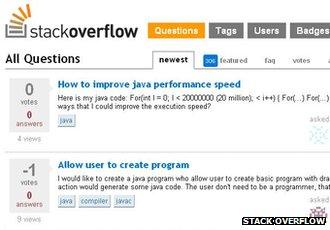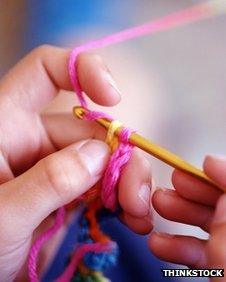TEDGlobal: Sharing sites revive the barter economy
- Published

A new age of community is emerging on and offline
Perhaps the biggest triumph of the recent jubilee weekend was how it enabled us to get to know our neighbours at street parties hosted across the country.
It seems that community spaces, from farmers' markets to craft fairs, are enjoying a new lease of life.
Running parallel with this are community-based websites offering people the chance to swap, barter and sell goods and services in a new way.
"There has been a massive resurgence in community in both the real world and the digital," author Rachel Botsman told the BBC.
Household chores
A speaker at the TEDGlobal conference in Edinburgh, Ms Botsman laid out her theory about a new age of "collaborative consumption".
"I believe that we are living through a collaborative revolution as significant as the industrial revolution," she told delegates.
"It is taking us back to the old market principles of sharing swapping, bartering. It has been reinvented for the Facebook age.
"We have moved from sharing information and music online to transferring trust about how we get things done."
Sites now offer people's services to do things the user may not have time for - from household chores, to supermarket runs and even assembling Ikea furniture.
There is an obvious reason why offline and online community spaces are so appealing, said Ms Botsman.
Brian Chesky, chief excecutive and co-founder of Airbnb on the idea behind his business
"When people are asked why they use farmers' markets rather than supermarkets they say it is because the first is more social. And it is the same reason why people choose AirBnB, there is an authenticity and social element to it that they like."
Human touch
AirBnB allows people all over the world to rent out their rooms. Set up in 2008 it was given a $1bn (£645m) valuation last year and over the last six months has enabled 10 million rooms to be booked.
One of its first hosts, London-based Sebastian Sandys, is now able to fund his day job running a second-hand book shop solely through income made with AirBnB.
It has connected him to a new community, which remains loyal even after leaving his home.
"Former guests were checking if he was OK during the London riots. He had messages from 13 of them before his own mother rang," said Ms Botsman.
Parking spaces
EBay was one of the first firms to realise that there was huge power in other people's stuff but it has been followed by many others:
Etsy, an online marketplace allowing people to sell homemade goods, now notches up annual sales of over $500m.
Carpooling.com, a global car-sharing scheme, clocks up one million rides each day.
Peer to peer money-lending services now see $2bn swapping hands without the intervention of banks.
And online sharing schemes are getting cleverer, finding solutions to problems we may not even know we had.

Stack Overflow allows experienced computer programmers to consult their peers for advice
New service Liquidspace aims to match business travellers with rooms that sit idle in office blocks around the world, while Parkatmyhouse does what its name suggests.
"It is proving popular at homes near stadiums, arena and airports," said Ms Botsman.
Parkatmyhouse has attracted funding from BMW, illustrating how large corporations are starting to take interest in the sharing economy.
Skill sharing
US entrepreneur Robin Chase rose to fame for her car-sharing scheme Zipcar which she started over a decade ago.
In 2010 she moved to Paris and embarked on Buzzcar, a scheme which helps neighbours rent their cars to strangers.
Ms Chase's business now has 1,000 cars across France and 6,000 members.
It took her a year and a half to persuade insurance companies to support the project. And once it was up and running she found that individuals who had signed up did not always respond to rent requests.
But she still believes in the power of individuals.
She refers to the new era of collaboration as Peer Inc in which "super-charged individuals" pool their skills to solve mundane and complex problems.
Examples include The Amazings, a website which allows the over-60s to share their skills, and Topcoder, where more than 400,000 engineers offer to solve complex coding problems.

The Amazings is a website allowing over-60s to share skills
Reputation dashboard
Another site, Stack Overflow, lets experienced programmers ask their peers complicated questions.
Around 5,5000 queries are asked daily with about 80% answered accurately. It has proved so popular within the geek community that users are starting to put their reputation scores on their CVs when they apply for offline jobs.
"They have started to realise that the reputation they have gained in one environment has value in another," said Ms Botsman.
If demand is the oil that lubricates capitalism, the new online marketplace is fuelled by reputations.
Creating "reputation dashboards" - one-stop shops where users get instant views of how others had behaved and performed - should become huge, predicted Ms Botsman.
"I can imagine a Google or Facebook search that offers a complete picture of people's behaviour in real-time - their intention, capabilities and values," she said.
A handful of companies already offer such services but Ms Botsman said a big player was likely to emerge, helping ensure that sharing sites remain reliable and viable. But even without such a giant the community marketplace looks here to stay for the foreseeable future.
- Published27 June 2012
- Published27 June 2012
- Published26 June 2012